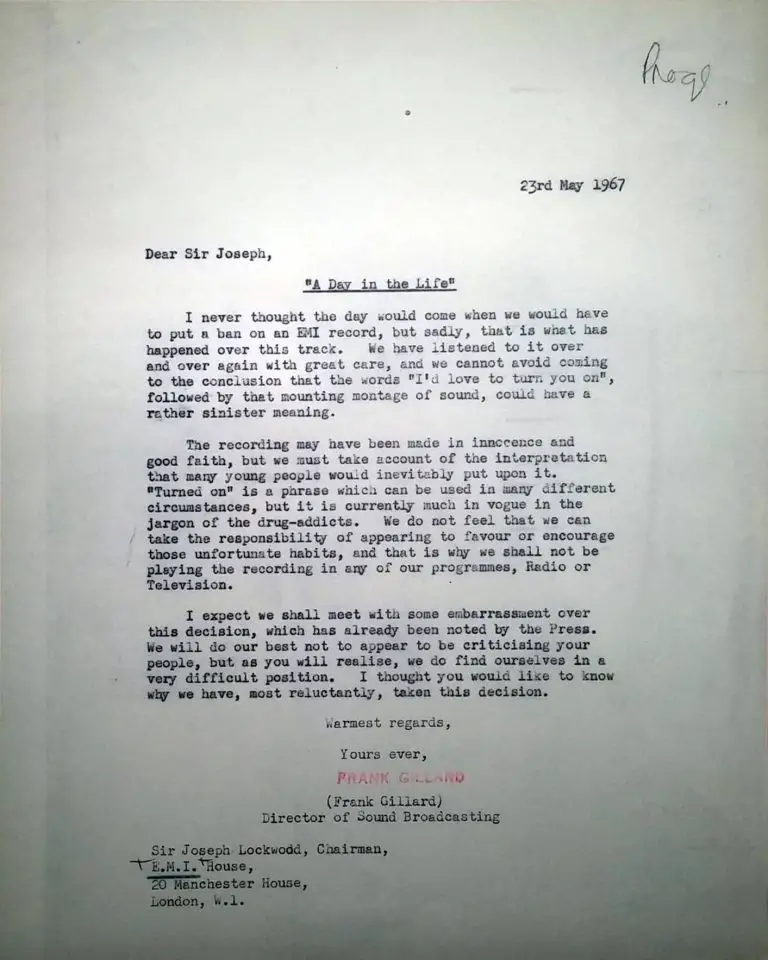A week before the release of The Beatles’ Sgt Pepper album, the BBC’s director of sound broadcasting, Frank Gillard, wrote to EMI head Sir Joseph Lockwood with the news that the corporation was banning A Day In The Life.
Gillard’s letter, dated 23 May 1967, read:
I never thought the day would come when we would have to put a ban on an EMI record, but sadly, that is what has happened over this track. We have listened to it over and over again with great care, and we cannot avoid coming to the conclusion that the words “I’d love to turn you on”, followed by that mounting montage of sound, could have a rather sinister meaning.The recording may have been made in innocence and good faith, but we must take account of the interpretation that many young people would inevitably put upon it. “Turned on” is a phrase which can be used in many different circumstances, but it is currently much in vogue in the jargon of the drug-addicts. We do not feel that we can take the responsibility of appearing to favour or encourage those unfortunate habits, and that is why we shall not be playing the recording in any of our programmes, Radio or Television.
I expect we shall meet with some embarrassment over this decision, which has already been noted by the Press. We will do our best not to appear to be criticising your people, but as you will realise, we do find ourselves in a very difficult position. I thought you would like to know why we have, most reluctantly, taken this decision.
The Beatles hit back at the decision, with Paul McCartney telling reporters: “The BBC have misinterpreted the song. It has nothing to do with drug taking. It’s only about a dream.” John Lennon added: “The laugh is that Paul and I wrote this song from a headline in a newspaper. It’s about a crash and its victim. How can anyone read drugs into it is beyond me. Everyone seems to be falling overboard to see the word drug in the most innocent of phrases.”

